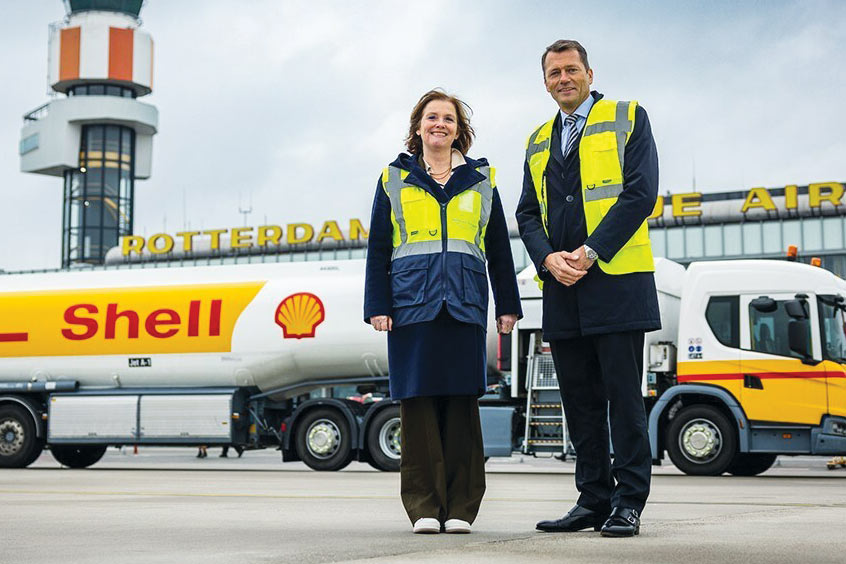Why visit ACE ’25?

Shell has signed a long-term agreement to blend SAF on all aircraft fuelled at Rotterdam The Hague airport (RTHA) in the Netherlands, starting in 2024. On top of the European Union blending mandate of six per cent, the airport will accelerate its efforts by setting itself a minimum target of eight per cent, to meet the more ambitious goal of the Dutch aviation sector of 14 per cent by 2030. Using SAF is among the few measures currently available to reduce emissions from international aviation.
"Sustainable fuel is essential for the future of aviation", says RTHA CEO Wilma van Dijk. "This long-term agreement makes it possible for Shell to invest in production facilities while allowing airlines to gradually adapt to a new reality."
"It's fantastic to support Rotterdam The Hague Airport on decarbonising flights through the use of SAF," adds Shell president Jan Toschka. "It is particularly encouraging to see an airport committing to long-term SAF agreements, for volumes above the levels required under EU mandates. This type of ambition helps play an important role in providing strong, stable demand that is necessary for scaling up the supply and use of SAF."
The added part sustainable fuel can lead to a CO₂ reduction of on average 80 per cent across the chain. Besides this, sustainable fuel leads to a reduction of soot and ultrafine particle emissions, which at higher percentages of blending, improves air quality.
Shell is building an 820,000 tonnes-a-year biofuels facility at the Shell Energy and Chemicals Park Rotterdam, which will produce SAF and renewable diesel made from waste.
For the moment, SAF is still much more costly than fossil kerosene. For this reason, and because large-scale production of SAF has yet to take off, it is important to phase in additional blending requirements. RTHA has chosen to sign a long-term agreement with Shell in order to offer transparency on the growth path and cost for the users at the airport.
As a result of the European blending mandate, the aviation sector must blend in two per cent SAF across the board by 2025. The target for 2030 is six per cent. However, this is not enough to meet the Dutch aviation sector's more ambitious target of 14 per cent SAF by 2030, as set out in the Sustainable Aviation Agreement.
RTHA therefore wants to speed things up by raising the target for 2024 by an additional two percentage points. This will be followed by incremental yearly increases of at least one percentage point until 2030, making for a total additional increase of minimal eight percentage points by 2030, on top of the statutory six per cent.